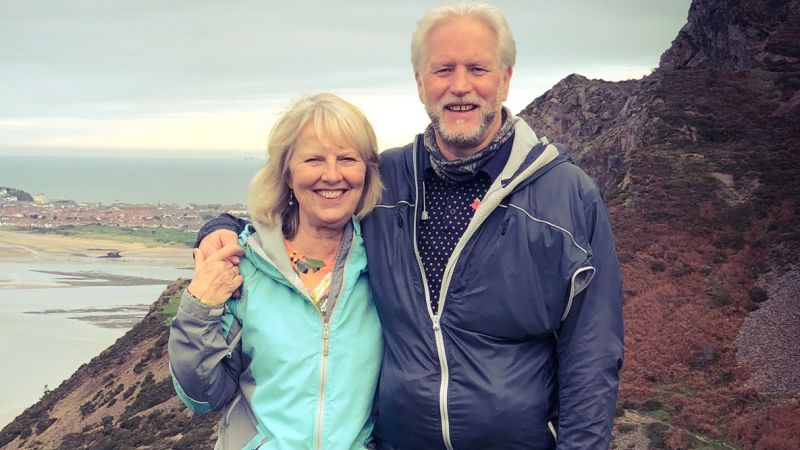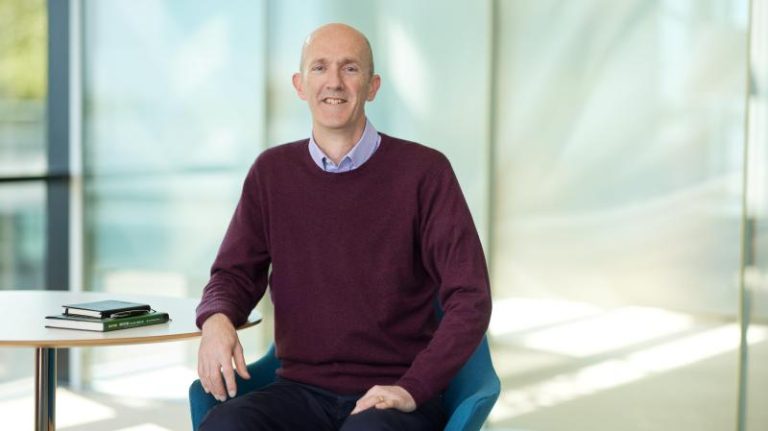You have power of attorney, now comes the really hard part
Alison Guthrie did everything right to ensure that her mother, Daphne, was looked after as she got older. She and her brother, Greg, registered a power of attorney in 2007, long before it was needed, knowing that it would make life easier one day.
Last year Daphne, 99, moved into a care home and could no longer manage her finances. But the family’s planning almost 20 years earlier has not spared them from a labyrinth of red tape.
A power of attorney is a legal document that gives a nominated and trusted person (the attorney) the authority to manage someone’s affairs if they no longer can. It has to be approved and registered with the Office of the Public Guardian (OPG), the government body that checks for fraud and abuse. Alison and Greg registered a power of attorney jointly and severally, which means they can each act individually for their mother without needing them both to sign everything.

“I thought that once it was registered with the OPG you had everything you needed, but it’s really only the beginning,” Guthrie, 67, said. A power of attorney must also be registered with all the companies — including banks, lawyers, pension firms, doctors and utility suppliers — with which the attorney will be liaising. Each has its own criteria and requirements for dealing with power of attorney and staff often do not have a proper procedure to follow.
Guthrie had problems managing her mother’s HSBC account and, after some to-ing and fro-ing, had to go into a local branch to give another signature. But this was nothing compared with the hassle of dealing with her share portfolio.
Daphne held shares in about 15 companies and funds, including Aviva, National Grid, Sainsbury’s, M&S and Shell, in a portfolio she had inherited from her husband. Guthrie wanted to change the share type of some of the funds to provide income to pay the £1,475 a week for her mother’s care at a home in Lincolnshire.
Many of the shares were held individually and eight months ago Guthrie began contacting Aviva and the other firms. Her mother held the shares directly so this involved a lot of admin and talking to share registrars such asComputershare and Equiniti.
• I’m 30 and I have applied for a power of attorney
“There’s a lot of digging to do before you find out who you need to register with,” Guthrie said. “Often you have to send certified copies of documents, some asked for my passport, proof of mine and my mum’s addresses.” Some companies asked for this information to be certified, and Guthrie ended up having to jump through hoops because her accountant’s certification was not accepted by some, so she had to pay a solicitor.
“Some of them sent more forms back, some wanted my brother’s signature too because they didn’t understand that I could act alone.”
There are two types of power of attorney. An ordinary power of attorney allows someone else to manage your financial affairs for a temporary period, for example if you are living abroad. A lasting power of attorney allows someone else to manage your affairs permanently if you are no longer able to. There are two types of lasting power of attorney: health and welfare; and property and financial affairs.
There are more than 6.85 million powers of attorney registered with the OPG but no centralised service that allows you to register documents across multiple financial firms, as there is for notifying banks and insurers that someone has died. The Death Notification Service was introduced by the financial industry in 2018 to help bereaved families.
Guthrie said: “I have lots of little scraps of paper for each company detailing what they needed. If everyone asked for the same set of information that would be really helpful.”
UK firms have to accept power of attorney documents but many people managing the financial affairs of someone else find obstacles in their way. Of 1,530 attorneys surveyed by the consumer group Which? a third said they had difficulties dealing with banks and building societies.
• Power of attorney hell for relatives dealing with banks
Jenny Ross from Which? said: “Registering with financial firms is often far from straightforward. Many attorneys have reported a lack of knowledge among bank staff and unwillingness to accept their authority as an attorney.”
When Pam Hall wanted to close her mother-in-law Jean’s mobile phone account with O2 in June last year, registering the power of attorney with the company over email was the easy part.
Hall, 65, and her husband, Steve, 73, from Llandudno in Conwy, had applied in October 2022 for power of attorney for Jean, 88, who had developed dementia. She moved into a care home in December 2022 and the power of attorney was registered with the OPG the following March.
Jean’s affairs were thankfully simple: she had a Santander bank account, gas and electricity accounts with British Gas and Ovo Energy, her state pension and an O2 phone contract that needed to be closed.
But she had a debt of £1.21 with O2 that Hall had to settle. She was told that she needed to call the bereavement line, but Hall said they would not accept her authority when she called.
Hall said: “They were asking me for the answer to a security question when I didn’t know what question they were asking. I said, ‘You know how ridiculous this sounds?’
“In the end they let me make the payment using Jean’s card, but it took probably half an hour. It was ridiculous.”
O2 said it required attorneys to go through security checks to protect customer accounts.
Stephanie Parish a partner at the Leeds law firm Clarion Solicitors said: “Sadly the financial system hasn’t caught up yet to the complexities of life and our legal system, and with an ageing population that is quite concerning. Although these are complex legal documents, a lot of it comes down to a lack of knowledge by companies, especially with frontline staff, around powers of attorney.”
More than 6,000 bank branches have closed since 2015 and banks now expect you to do most things online. But Which? found that only 9 out of 21 banks allowed attorneys to register with them online while only 6 allowed them access to mobile banking. You can use online banking with Nationwide Building Society as an attorney only if you are already a customer, while with HSBC you can use online banking as an attorney only if the donor does not.
Many of the best fixed savings accounts, including those offered through the savings platform Raisin UK, SmartSave and the Access Bank, cannot be opened by attorneys.
Tony D’Emanuele from Glossop in Derbyshire has had power of attorney for his mother, Georgette, 94, who has dementia, since 2012. He wanted an account for the proceeds of Georgette’s house sale from which he could take her £5,000-a-month care fees and Atom Bank was paying a market-leading 3.2 per cent in March last year.
But when D’Emanuele emailed Atom he was told that he would have to open and manage the account entirely over the phone. He said: “I don’t understand why. If you’re representing someone you have legal approval to do it, you don’t want this hassle — you have enough stress as it is.”
Atom Bank said: “Power of attorney is a complex area, and we want to ensure we are providing customers with the appropriate support. In cases where there are sensitivities and extra information required, we recommend speaking to our customer support team.”
Skipton Building Society also does not allow online access for attorneys: you can manage savings accounts only in a branch, by post or over the phone, which it said was to ensure legal documents were in order and because of the duty of care it had to customers.
The banking trade association UK Finance said: “There are regulatory rules that firms need to adhere to when opening accounts and registering a power of attorney. We know there is more to be done and we are working with our members and government bodies to look at how greater consistency can be achieved across the industry.”
It costs £82 to register each type of power of attorney and forms can be downloaded from gov.uk. You get a 50 per cent discount if your pre-tax salary is less than £12,000. A donor can choose which powers they want to include or exclude in a power of attorney, which is important to ensure your needs are respected.
The forms must be signed in a specific order. The donor must make the first signature, then a “certificate provider” — someone who is not a relative but has known the donor for at least two years, or a professional such as a GP or solicitor — signs to confirm that the donor is making the power of attorney with free will and understands its implications. Finally the attorney is the last to sign the form and each signature must be witnessed.
While you can apply for a power of attorney without professional help, anyone with complicated needs should consider asking a solicitor for advice.






